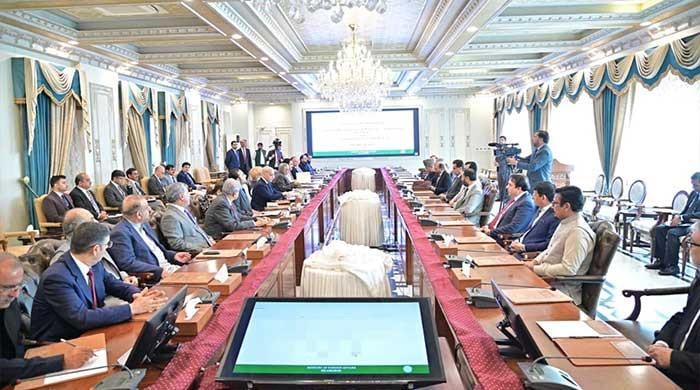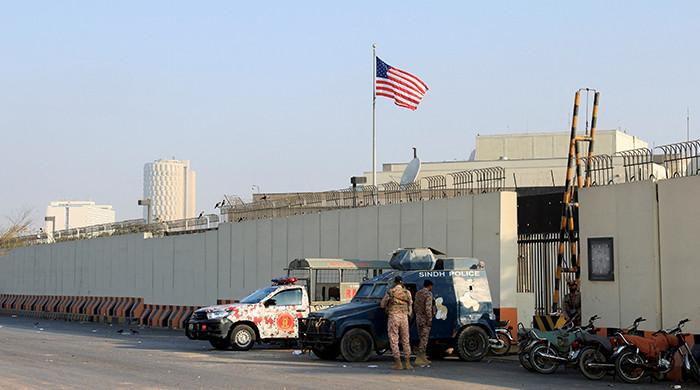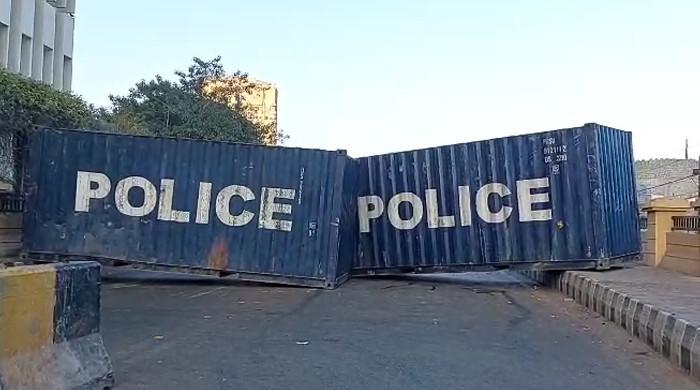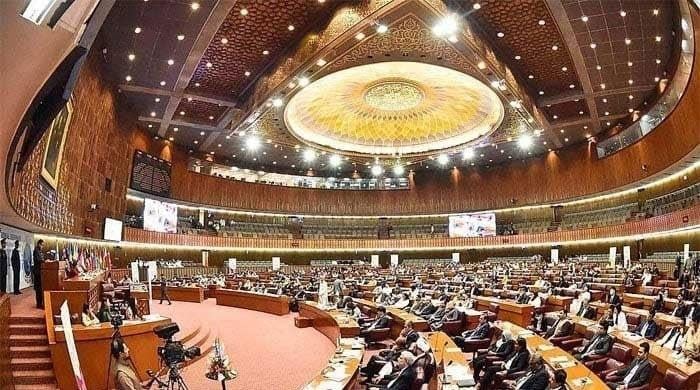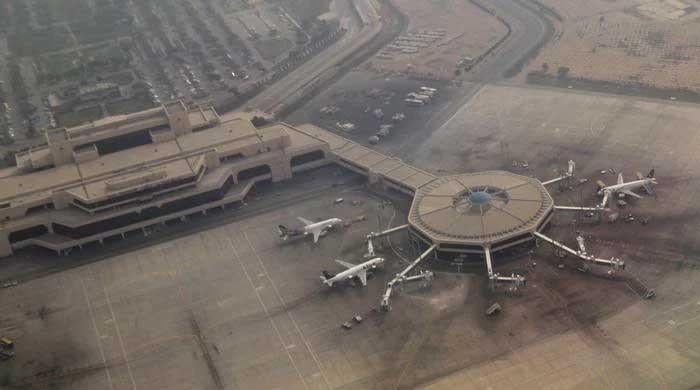'A matter of our survival and respect': Gwadar women gear up for new protest
Over 18,000 women marched in unison on November 29 in Gwadar to fight for their rights
December 07, 2021
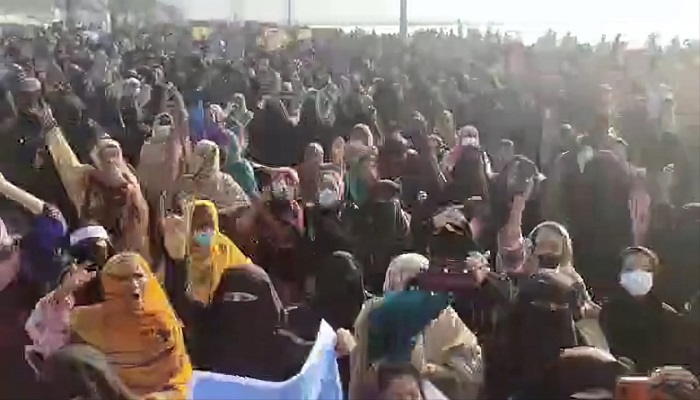
The women in Gwadar are not ready to give up just yet. In fact, they are planning to come out in larger numbers on December 10 to again demand basic rights and facilities for them and their families.
The last time Gwadar’s women hit the streets was on November 29. They surged through the main thoroughfare of the underdeveloped port city, where various projects under the $62 billion China-Pakistan Economic Corridor (CPEC) are under construction.
That day, over 18,000 women marched in unison, some with very young children, carrying placards that read: “Gwadar Ko Haqooq Do” (Give rights to Gwadar), “We need universities and colleges instead of check posts”, “Give us female doctors for maternity services”, “Give us a university”, “Give us a respectable life”.
It was a historic moment for the city, which was witnessing its first women’s movement.
For Rehana Gul, who participated in last month’s rally and will be joining next week’s as well, the biggest problem in the city is the large trawlers, which are illegally plundering the Arabian seabed, making it harder for fishermen to fish.
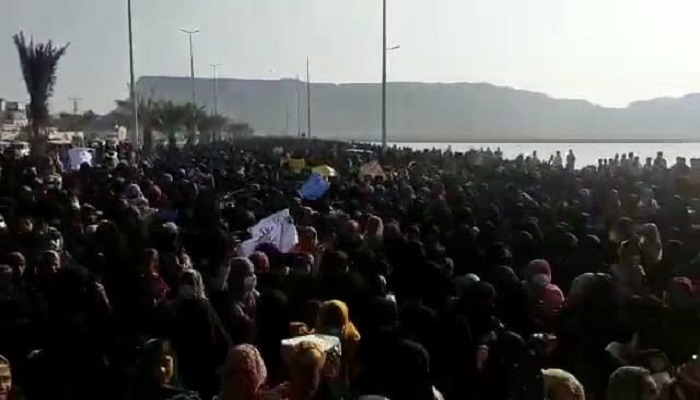
Fishing is the main source of income for most of the residents. “It has become tough to run the kitchen now,” Gul told Geo.tv, “In the last three or four years, there have been days when my husband, who is a fisherman, has come back empty-handed with no money to feed our children.”
Despite protests from local fishermen about the fleets, they have received no response from the Gwadar Development Authority or the Balochistan government.
Besides the trawlers, the protesting women have listed down 17 demands, which include: implementing the Fisheries Ordinance 1986, ensuring security officials do not humiliate locals, removing unnecessary checkpoints, establishing a university, providing clean drinking water, recovering forcibly disappeared people, and reducing restrictions on trade at the Iranian border, amongst others.
Protestor Mahnoor Baloch said that although the Gwadar society is very conservative, women are now refusing to stay at home.
“We had to come out,” she said, “Women can’t get a proper education here and then their families are humiliated at security check posts as well. It is a matter of our survival and our respect.”
Talking about the CPEC projects in the city, Fatima Aslam Baloch, a protestor, said that it is unfortunate that the Chinese and the Balochistan government is spending money on developing the port but not on the local, poor people.
However, Anis Tarique Gorgej, the assistant deputy commissioner said that the local administration is in touch with the protestors and all their concerns will be addressed.
“We are already working on stopping the trawlers and to facilitate trade at the Iranian border,” Gorgej said, “But fulfilling all the demands will take some time.”






